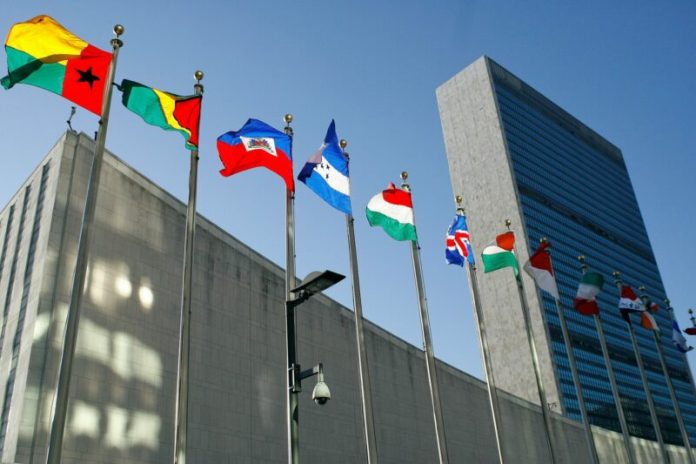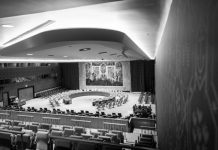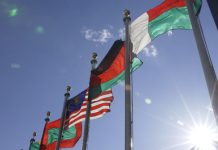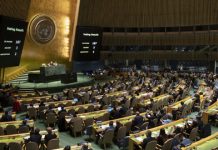At COP30 in Belém, Brazil, the UN International Organization for Migration (IOM) is pressing negotiators to make climate mobility a core part of adaptation plans.
“People and communities who choose to stay must be safe, and those who decide to move must have the option to do so with dignity,” Ugochi Daniels, IOM’s Deputy Director General said on Thursday.
Across 80 countries, IOM runs projects that put local communities in charge of solutions. Ms. Daniels hopes COP30 will be “a turning point to place human mobility as a key area of climate action,” especially in national adaptation plans and financing for loss and damage.
‘Ten seconds that changed my life forever’
For Robert Montinard from Haiti, this debate is personal. The 2010 earthquake lasted just 10 seconds, but shattered lives for generations. Seeking safety, he fled to Brazil as a refugee. Today, he leads the Mawon Association, helping others rebuild far from home.
At COP30, Robert insists on one thing: refugee voices must be heard.
“We want to be part of the solution. We want migrants and refugees to be heard. Those affected by the consequences of climate change – refugees, Indigenous Peoples, Black communities, women – have the solutions,” he said.
This week, Robert handed a proposal to Brazil’s First Lady, Rosângela Janja da Silva, and Environment Minister Marina Silva. It calls for municipal climate councils, action against environmental racism, and community brigades to respond to disasters.
He calls Haiti’s plight “climate injustice.” The same hurricanes that strike Florida, he said, leave destruction behind in his homeland – but while the US rebuilds swiftly, buildings ruined in Haiti’s 2010 quake still lie in rubble.
A crisis feeding conflict in Ethiopia
From another corner of the Global South, Makebib Tadesse sees the same pattern in Ethiopia, where climate pressures are intensifying conflicts over land and resources.
He described a “continuous cycle of violence and displacement” as food and water grow scarce. In northern Ethiopia, where he was born, the impact of climate change now rivals – or even surpasses – the devastation of the civil war from 1974 to 1991.
“Climate change is pushing people out of Ethiopia in ways we’ve never,” he said.
Both Robert and Makebib are part of the UN refugee agency (UNHCR) delegation at COP30, alongside Venezuelan Indigenous leader Gardenia Warao.
‘Brazil’s openness to refugees should be celebrated’
Giving voice to their message is Alfonso Herrera, Mexican actor and Latin America Goodwill Ambassador for UNHCR, formally known as the Office of the UN High Commissioner for Refugees.
“The voices of refugees have been silenced — and they must be heard,” he told UN News.
Mr. Herrera has traveled across the region – from Mexico to Venezuela, Honduras and El Salvador -witnessing the human cost of climate displacement and the UN’s efforts to restore hope through education and legal support.
He believes Brazil’s openness to welcome refugees deserves recognition, especially “when so many other countries take the completely opposite attitude.”
As COP30 debates how to adapt to a changing planet, displaced people remind the world that climate action is not just about saving ecosystems – it’s about protecting lives, preserving dignity, and ensuring no one is left behind by the rising tide.
UN News is reporting from Belém, bringing you front-row coverage of everything unfolding at COP30.
Source of original article: United Nations (news.un.org). Photo credit: UN. The content of this article does not necessarily reflect the views or opinion of Global Diaspora News (www.globaldiasporanews.com).
To submit your press release: (https://www.globaldiasporanews.com/pr).
To advertise on Global Diaspora News: (www.globaldiasporanews.com/ads).
Sign up to Global Diaspora News newsletter (https://www.globaldiasporanews.com/newsletter/) to start receiving updates and opportunities directly in your email inbox for free.






























